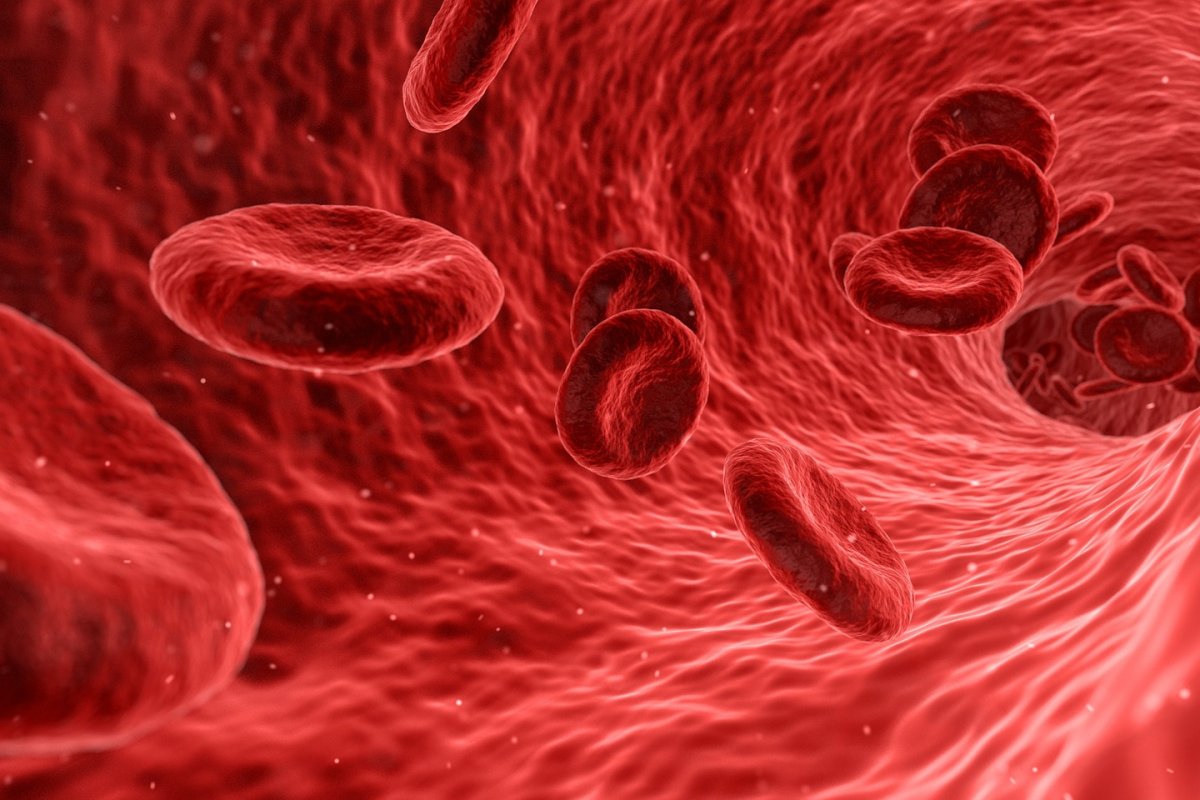
Sticky, thick blood, otherwise known as hypercoagulability, puts the body at increased risk of blood clots and also prevents the delivery of oxygen and nutrients to tissues and cells.
One of the main causes of sticky blood is polycythemia, a chronic disease in which the amount of red blood cells (red blood cells) in the blood increases. In 70% of patients, the number of platelets and leukocytes changes upwards.
This causes various complications (thrombosis), including heart attacks, strokes. As a rule, at first, the sick feel good, and changes in the blood test are found by chance. Symptoms of the disease appear later.
Some people with polycythemia do not experience any symptoms at all, which puts them at great risk because they do not care about prevention.
Symptoms of polycythemia:
- headaches
- blurred vision
- redness of the skin on the face, arms and legs< /li>
- feeling tired
- high blood pressure
- bouts of dizziness
Polycythemia can also lead to stomach discomfort and problems like nosebleeds and bruising. The condition may worsen after taking a bath or shower: itching appears.
Examples of complications of this condition include pulmonary embolism, in which a blockage occurs in the blood vessel that carries blood from the heart to the lungs.
Another complication may be the development of deep vein thrombosis, in which blood vessels in the leg become blocked.
Warning signs of pulmonary embolism:
- Pain, swelling, redness, and tenderness in one of the limbs
- Severe pain in the affected area
- Warm skin in the area of the clot
- Shortness of breath
- Pain in the chest or upper back
- Coughing up blood
- Dizziness.
What causes polycythemia?
- Overweight
- Smoking
- Alcohol abuse
- Using diuretics
Polycythemia can be the result of dehydration, so simply drinking more water can help. That is, if you lose weight, start to lead a healthy lifestyle, then the condition will improve. This is polycythemia vera.
If blood tests show that the body is producing too many red blood cells, then it is polycythemia vera. In this case, there is a problem with cells produced by the bone marrow that become red blood cells.
This subtype of the disease is considered rare and is usually caused by a mutation in the JAK2 gene. Affected bone marrow cells can also develop into other cells found in the blood, the NHS study says. This means that people with polycythemia vera may have abnormally high numbers of both platelets and white blood cells.
Warning signs of a stroke due to a blood clot
Although this condition is caused by a genetic change, it usually not inherited, and in most cases the diagnosis is made after the age of 60.
Clots: the doctor called the often overlooked signs that you are at risk of stroke
Read also: Eleven symptoms pointing to obvious problems with the thyroid gland.
